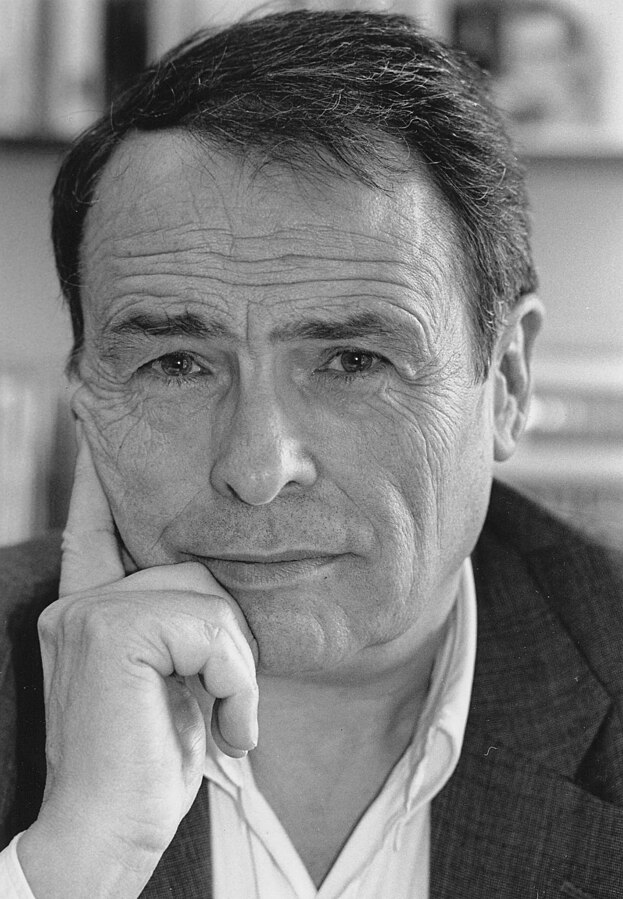Summary | Excerpt | Reviews | Beyond the Book | Read-Alikes | Genres & Themes | Author Bio

 Book Reviewed by:
Book Reviewed by:
Chloe Pfeiffer
Buy This Book
This article relates to Change
 In addition to being a novelist, Édouard Louis, author of Change, is a scholar of the French sociologist Pierre Bourdieu. Louis's scholarly work has explicitly informed his novels, which are about the violence and indignity of poverty, the racism and homophobia of his working-class childhood, and the difficult act of moving between classes.
In addition to being a novelist, Édouard Louis, author of Change, is a scholar of the French sociologist Pierre Bourdieu. Louis's scholarly work has explicitly informed his novels, which are about the violence and indignity of poverty, the racism and homophobia of his working-class childhood, and the difficult act of moving between classes.
In 1979, Bourdieu published Distinction: A Social Critique of the Judgement of Taste (1979), which Louis called, in conversation with Stephen Patrick Bell for the LA Review of Books, "probably the most important book about social classes since the works of Karl Marx. For sociologists all around the world, it completely flipped the script on the old analysis of what social classes are."
Distinction was based on data collected in France in the 1960s and 1970s and is about the relationship between social classes, status groups, and cultural capital. Unlike theorists who came before him, Bourdieu's theory of class is that it is not entirely economic, but also symbolic: made up of social practices. One of his most famous but also most debated theories is habitus, which is defined as a socially constituted system of dispositions that orient the "thoughts, perceptions, expressions, and actions" of a social class. So class, for Bourdieu, is not immutable or purely economic (say, the bourgeoisie versus the proletariat), but also related to lifestyle and cultural values. The social capital attached to one's class is a key aspect of his sociological landscape: having social status over someone else allows one to have "power over" them, even if it is not economic power. We can see Bourdieu's ideas animating Change, as Louis imitates the lifestyles of the latest class he'd like to join, and in successfully moving up, he gains power over the people from his past.
Bourdieu's ideas especially shaped Louis's consideration of the violence of his childhood. The real subject of his debut novel The End of Eddy, Louis said in an interview with The Paris Review, "is how people like the ones in my village suffer from exclusion, domination, poverty… these circumstances produce brutality through what Pierre Bourdieu called the principle of the conservation of violence. When you're subjected to endless violence, in every situation, every moment of your life, you end up reproducing it against others, in other situations, by other means."
In Acts of Resistance, Bourdieu wrote: "You cannot cheat with the law of the conservation of violence: all violence is paid for, and for example, the structural violence exerted by the financial markets, in the form of layoffs, loss of security, etc. is matched sooner or later in the form of suicides, crime and delinquency, drug addiction, alcoholism, a whole host of minor and major everyday acts of violence."
One of the instruments of this daily violence, Louis added, is the "cult of masculinity," which dominates the life of his autobiographical character Eddy as a gay and effeminate youth in The End of Eddy. Referencing Bourdieu in conversation with Bell, Louis said that "we take everything from the working class: we take money from them, we take access to culture, we take access to so many things from them, and the only thing that is left for working-class people is their body, and not for so long. And so, Bourdieu says we should not be surprised if there is an important ideology of what is the body, what is strength, what is physical domination, and maybe, by extension, masculine domination, homophobia and everything, the cult of the strong body."
Reading Louis's novels through this sociological—and inherently political—lens is a fascinating and educational exercise.
Pierre Bourdieu, 1996
Photo by Bernard Lambert (CC BY-SA 4.0)
Filed under Society and Politics
![]() This article relates to Change.
It first ran in the April 3, 2024
issue of BookBrowse Recommends.
This article relates to Change.
It first ran in the April 3, 2024
issue of BookBrowse Recommends.




On the whole, human beings want to be good, but not too good and not quite all the time
Click Here to find out who said this, as well as discovering other famous literary quotes!
Your guide toexceptional books
BookBrowse seeks out and recommends the best in contemporary fiction and nonfiction—books that not only engage and entertain but also deepen our understanding of ourselves and the world around us.